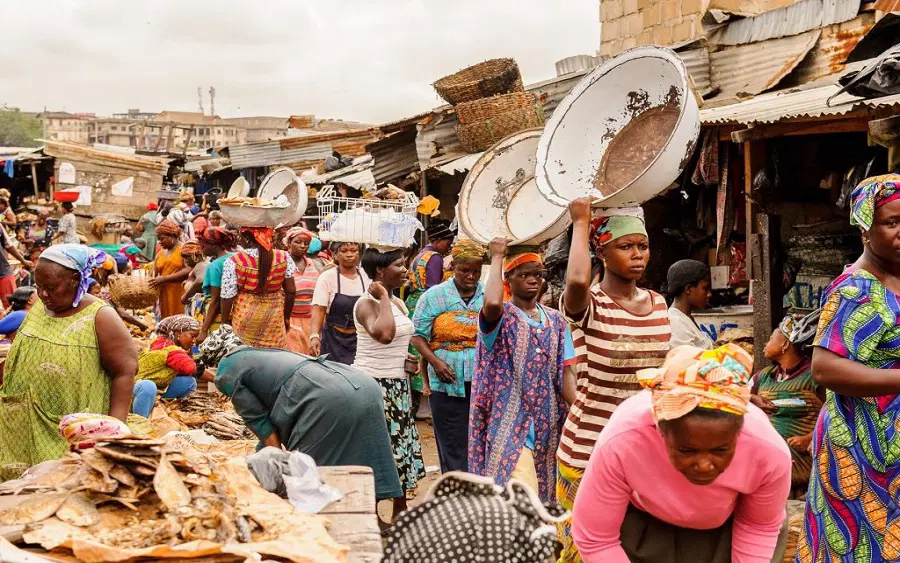The World Bank has projected a rise in poverty levels in Nigeria, estimating an increase of 3.6 percentage points by 2027. This forecast was contained in the Banks Africas Pulse report, released during the ongoing Spring Meetings of the International Monetary Fund (IMF) and the World Bank in Washington, DC.The report presents a bleak outlook for poverty reduction in Nigeria, warning that despite modest gains in economic activityparticularly in the non-oil sector in late 2024structural challenges such as overreliance on natural resources and national fragility are likely to stall progress.According to the World Bank, Nigeria and other resource-dependent, fragile countries in Sub-Saharan Africa will see poverty worsen, unlike non-resource-rich nations which are projected to achieve faster poverty reduction. Poverty in resource-rich, fragile countriesincluding large economies like Nigeria and the Democratic Republic of Congois projected to increase by 3.6 percentage points between 2022 and 2027, the report stated. The Bank noted that Sub-Saharan Africa continues to bear the highest global rate of extreme poverty. In 2024, 80% of the worlds 695 million extreme poor lived in the region, with half of the 560 million located in just four countries.By contrast, South Asia accounted for 8% of the worlds extreme poor, East Asia and the Pacific 2%, the Middle East and North Africa 5%, and Latin America and the Caribbean 3%.The report attributes the slow pace of poverty reduction in resource-rich countries to falling oil prices and weak fiscal structures. In contrast, non-resource-rich nations are leveraging high agricultural commodity prices to drive stronger growth, despite existing fiscal challenges. This follows a well-established pattern whereby resource wealth combined with fragility or conflict is associated with the highest poverty ratesaveraging 46% in 2024, which is 13 percentage points higher than in non-fragile, resource-rich countries, the report added. In response to these challenges, the World Bank urged Nigeria and similar economies to strengthen fiscal management and build a more effective fiscal contract with citizens saying such reforms are vital for promoting inclusive economic development and achieving sustainable poverty reduction. The post More Nigerians will become poor by 2027 World Bank appeared first on Linda Ikeji Blog.
Discover more from viewnowafrica.com.ng
Subscribe to get the latest posts sent to your email.



